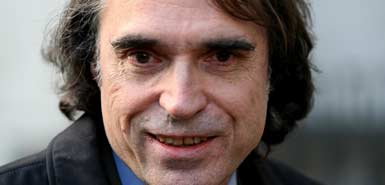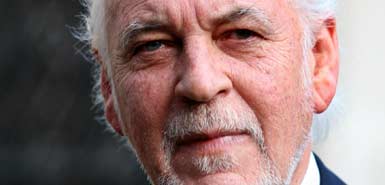Whiter Shade of Pale.
The song that became the sound-track to the summer of 1967 led to three years of bitterness between former bandmates and a controversial High Court decision.
 Matthew Fisher, the musician who played its distinctive organ solo, was awarded
40 per cent of musical copyright in 2006 – 38 years after the song was recorded.
Matthew Fisher, the musician who played its distinctive organ solo, was awarded
40 per cent of musical copyright in 2006 – 38 years after the song was recorded.Yesterday the Court of Appeal ruled that although Mr Fisher, a computer programmer from Croydon, was entitled to co-authorship, he should not receive any royalties.
In the judgment, Mr Fisher was found “guilty of excessive and inexcusable delay in asserting his claim”.
His name will go on the record, but all future royalties – with potential earnings of £1 million – will remain firmly in the bank accounts of his estranged bandmates and their record company.
The classically-trained musician brought the claim nearly four decades after he and his Hammond organ were recruited by the band to contribute the Bach-inspired solo that became the song’s
signature.
In the judgment, formally handed down by Lord Justice Mummery, it was agreed that the organist’s creative input was instrumental in making the track a hit.
However, the delay in making a case, which Mr Fisher began in May 2005, “made it unconscionable and inequitable for him to seek to exercise control over the commercial exploitation of the
copyright in the work,” said Lord Justice Mummery.
“He silently stood by and acquiesced in the defendant's commercial exploitation of the work for 38 years."
Mr Brooker, 62, once said he would take his own name off the record if Mr Fisher’s went on it. He is still fighting Mr Fisher, 60, over who will pay for the estimated £500,000 legal costs.
None of the members of Procol Harum, past or present, was in court to hear the majority ruling.
 Mr Brooker said: “For nearly three years this claim has been a great strain upon
myself and my family.
Mr Brooker said: “For nearly three years this claim has been a great strain upon
myself and my family.“I believe the original trial was unfair and the results wrong. Justly, the decisions of the Court of Appeal have gone some way to putting this right and I would hope that now we can all get on
with our lives.”
Legal representatives of Mr Fisher said he was “disappointed, but not unhappy” with the result.
Mike Shepherd, of Jens Hill & Co, said: “For Matthew, this has always been about getting his name on the record. He didn’t want this song to go down in history without his name on it.
“We can understand about past royalties, but why is it unjust to award future royalties to someone who, the court agreed, helped make a song a hit?”
Having sold 10 million copies over the past four decades, A Whiter Shade of Pale still earns substantial royalties for the owners of the copyright – originally Mr Brooker and the lyric writer
Keith Reid.
Mr Fisher was a member of Procol Harum from 1967 to 1969 and blamed the delay in bringing the case partly on his reluctance to jeopardise his position within the band.
Mr Brooker went to the Court of Appeal last October after Mr Fisher won the High Court ruling in December 2006.
The music industry will breathe a sigh of relief that the claim for back royalties was dismissed, said Lawrence Abramson, partner of Harbottle & Lewis, which handled the case.
“In principle, it’s going to discourage these sorts of claims from being brought in the future. The court basically found that if you leave it for 40 years, for too long, it doesn’t matter whether
you have authorship, you just cannot claim.”
Had the original judgment been upheld, it could have paved the way for more musicians from the era who felt their efforts were unsung, he said.
“Very often the musicians who play the famous solos are not the ones who wrote the song. This will discourage them,” Mr Abramson said.
“I wonder, when these lads were writing this song back in ’67, would they have ever thought that, as well as becoming a classic, it would also lead to a legal landmark case.”
An attempt by Mr Fisher to take the case for final appeal at the House of Lords is being considered.
Crying out for more?